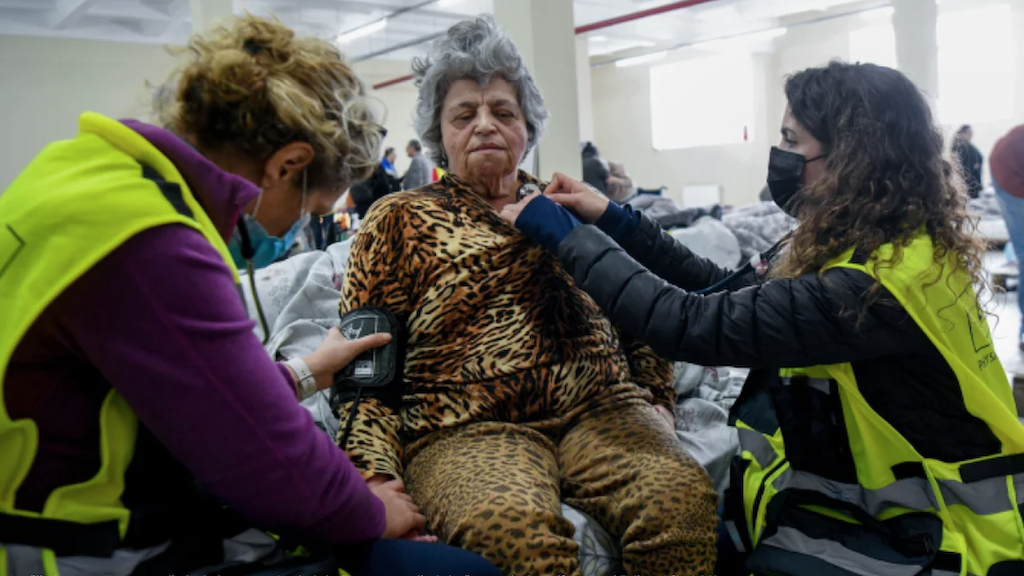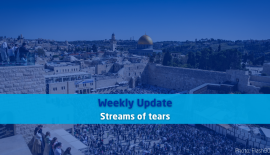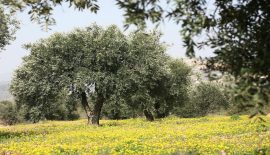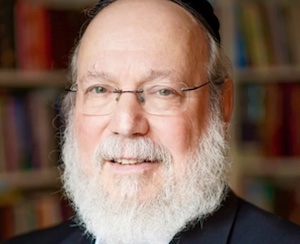What to do with all displaced persons?
In the meantime we are in the third week of the war in Ukraine. It seems far from over. In Western Europe we are confronted with more and more refugees.
Sometimes we are all a bit of a refugee
With Purim (the Jewish festival of Lots, originated 2,500 years ago) the Jews had nowhere to go. All Jews were stuck in the empire of Ahasuerus and Haman, which stretched from India to Ethiopia, 127 provinces (Esther 1:1). Haman ordained in the Book of Esther that all Jews had to be killed. Ultimately, they were saved from Haman’s claws and the Jews moved back to Israel, after the Babylonian exile where they were permitted by king Cyrus to build the second Temple.
“Haman ordained in the Book of Esther that all Jews had to be killed”
But 3,334 years ago we left Egypt. Pharaoh was not happy with us after 10 plagues. We were chased out of Egypt. Every year we commemorate our exodus by experiencing a number of essential elements of the historical happening again. On the first night of Passover we eat matzot (unleavened bread) to commemorate the slavery and oppression, but also to commemorate the liberation. The liberation was so abrupt that the Jews had no time to let the dough rise: “It is the bread of affliction that you will – as long as you live – remember of the day that you left Egypt, of that hasty departure.” (Deuteronomy 16:3). We eat maror or horseradish because everything was so sad and bitter. But on Seder evening we also drink four cups of wine because we are grateful to be free and live a Jewish life. Apparently, it is important to remember every now and then that we are all sometimes a bit of a refugee. And then we see the negative points but do not forget that there are rays of light as well.
Up-to-date
The present-day European refugee problem led to much compassion but fear also emerged. All Western European countries opened their borders and promised genuine help, unlike to our grandparents during the Shoah. Did Western Europe finally learn something from history and from the Torah?
How do we deal with this as Jews? There is no doubt about one distinct guideline. The Torah is very clear about it: “You shall not wrong a sojourner or oppress him, for you were sojourners in the land of Egypt” (Exodus 22:21). We must not wrong refugees. We must not leave them to their fate. We must help and shelter them.
But the Torah is also very sensitive to the psychological well-being of refugees. In the Talmud “oppression” is also explained with “bruise with words”. Bruising, insulting and discarding as disguised criminals is out of the question. We are not allowed to insult refugees. Alas that happens all too often. Unknown makes unloved. The refugee crisis is a moment of humane truth in the history of Europe. It is an enormous moral challenge.
Ultimately, it is about our compassion and self-sacrifice. Tiny Israel has always taken in many refugees. People feared for economic decline. But miraculously the Israeli economy is still growing.
“Ultimately, it is about our compassion and self-sacrifice”
But, are we allowed to examine refugees about their terroristic or other annoying intensions? Yes, absolutely! As soon as the first need has been met, every country has the right and obligation to safeguard its own safety.
Background research is absolutely not wrong. “If somebody asks for food, give him food straight away. Maybe he is really starving. After that (and sometimes you must) absolutely investigate if we are cheated or not” (Talmud).
Moral demands
Can we impose demands on refugees? Yes, absolutely, and moral demands as well. When the Jews were taken into exile five centuries before the common era to Babylonia, they received a well-meant mission from the prophet Jeremiah, in the name of God: “But seek the welfare of the city where I have sent you into exile, and pray to the Lord on its behalf, for in its welfare you will find your welfare” (Jeremiah 29:7). This means: be welcome, participate, integrate while preserving your own unique identity. Share your feelings, but do not speak inflammatory language against the host country. Become a part of society, enrich your new homeland with the fine cultural aspects that you bring with you and participate in the development of your new environment.
The Biblical principle of poverty alleviation amongst all financially strong citizens means a proportional distribution of the refugees over Western Europe. Now Western Europe is a unity, proportional distribution is a moral duty. The refugee problem is ultimately the question of our hospitality and self-sacrifice.






